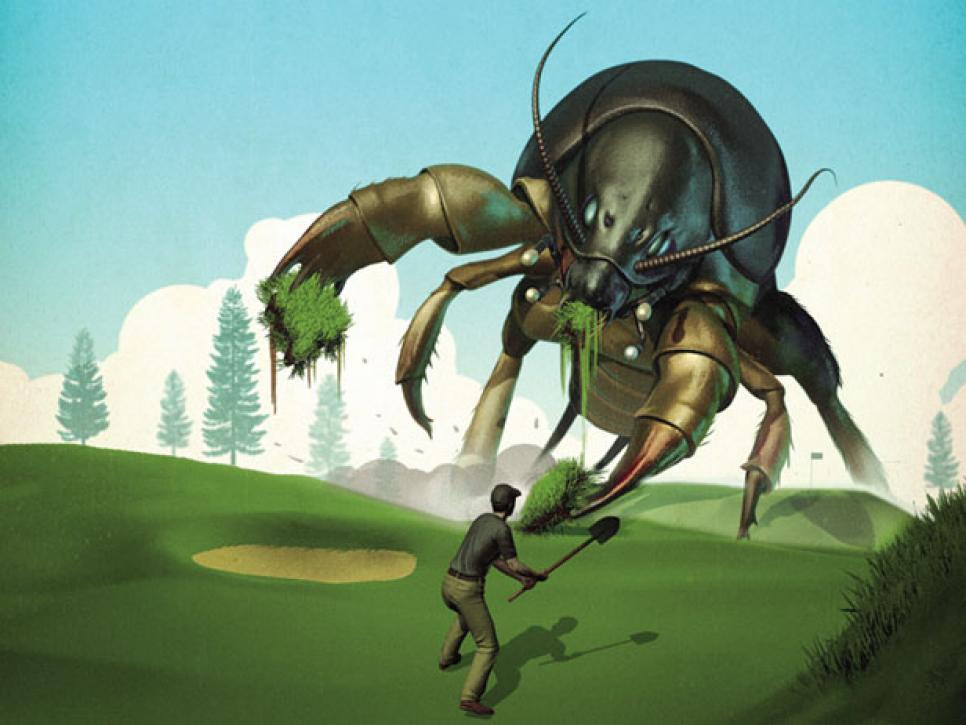Courses
The War on Bugs

There are enemies out to destroy our golf courses, all sorts of critters that like to gobble the grass, usually from the bottom up, and all sorts of diseases that can quickly move in on a hot, humid day and wipe out entire greens. The industry has developed low-impact programs to combat these forces, but sometimes the only solution is a chemical one. So we asked our panel of expert superintendents: Should we be concerned for our health if we see the maintenance crew—sometimes dressed like they just came from a lunar landing—spraying the golf course on the day we play?
The answer is no. The products are applied by state-certified applicators using properly calibrated equipment in accordance with the product and local, state and federal laws. However, some people know they're allergic to certain chemicals. Those golfers should check with the superintendent or golf shop to find out what products, if any, are being applied that day. Then decide if they want to play.
*James Roney Jr.
Saucon Valley Country Club, Bethlehem, Pa.*
Almost every product that the superintendent uses is considered safe once it has dried on the turf.
*Fred Gehrisch
Highlands (N.C.) Falls Country***
Many times they're spraying wetting agents, which are nothing more than highly refined soaps.
*Matt Shaffer
Merion Golf Club, Ardmore, Pa.*
Our profession has come a long way since the days of "Caddyshack" and Carl Spackler. Although I must admit there is a little bit of Carl in all of us. We are stewards of the environment and don't want to impact wildlife or our customers in any way. Not to mention that the EPA registers all chemicals before they can be legally used on a golf course.
*Josh Heptig
San Luis Obispo (Calif.) County Golf***
Aware? Yes. Concerned? No. Golf superintendents take great care in selecting products that have a low risk to golfers, workers and the environment. Still, use common sense. Avoid contact between a golf ball and your mouth. Avoid placing cigarettes or cigars on the ground. Avoid wiping your face with a towel that you've placed on a putting green.
*Paul Carter
Bear Trace At Harrison Bay, Tenn.*
Often the applicator is wearing a suit simply to avoid getting his clothing discolored. As for chemicals, I'll share what Michigan State biology professor Dr. Joseph Vargas said: The drugs we call medicines are really human pesticides. It doesn't matter if a bacterium or fungus is attacking a human or a plant; if you're going to control it, you have to use a chemical to kill it. His point is, if we called fungicides, herbicides and pesticides "golf-course medicines," we'd look at them differently.
*Russ Myers
Los Angeles Country Club*